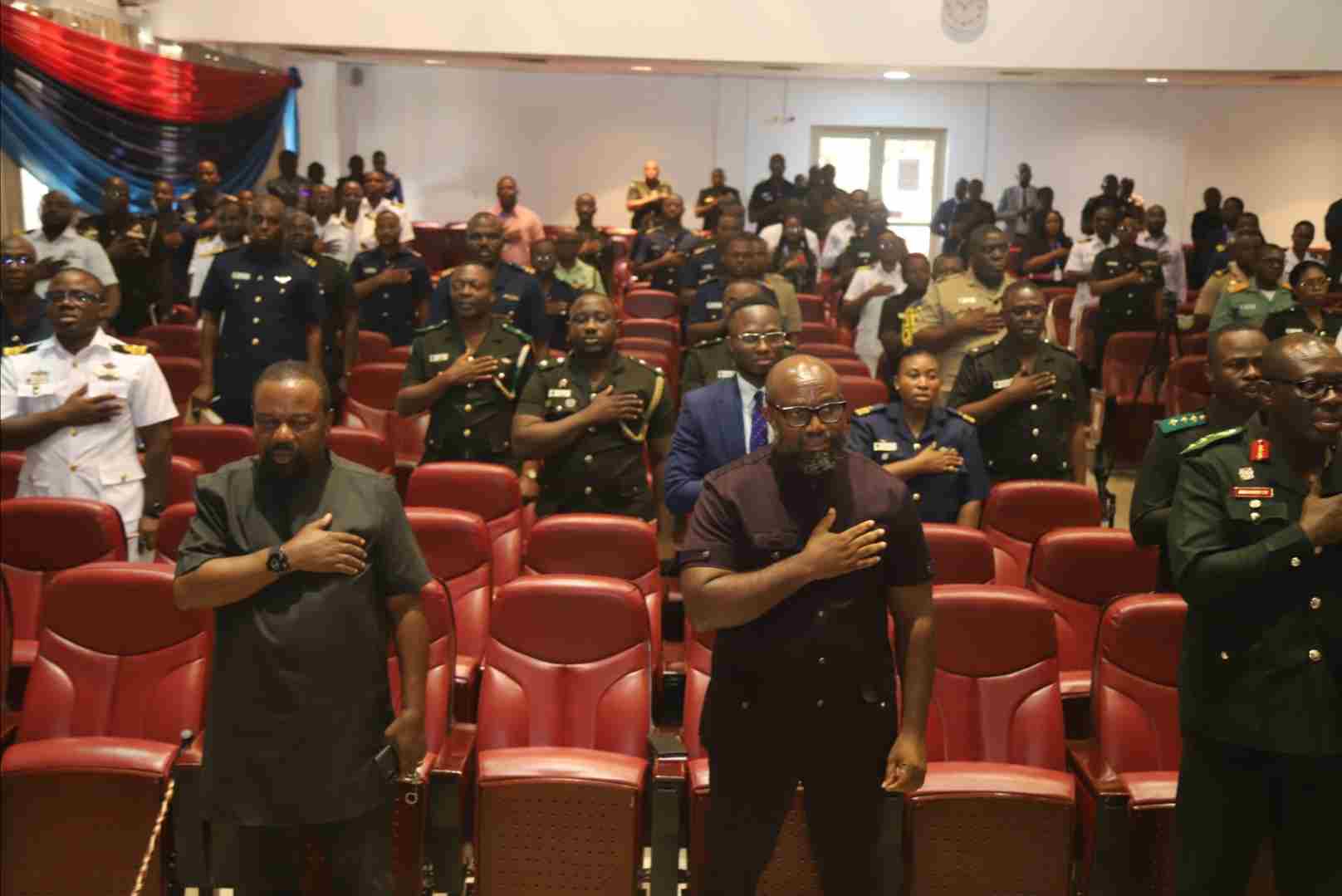The McDan Group of Companies has procured two shipping vessels and two cargo planes to restart the running of an African shipping line in the mode of the defunct Black Star Line, to support the opportunities generated by the African Continental Free Trade Area (AfCFTA) agreement.

The Chief Executive Officer (CEO) of the McDan Group of Companies – Dr Daniel McKorley made the revelation as a Guest-of-Honour at the Ghana Armed Forces Command and Staff College (GAFCSC), when the Military College commenced its 2023 edition of the Maritime Sector Governance Course 2023 (MSGC ‘23) on Monday 13 February 2023.
The CEO expressed sorrows at the non-existence of a shipping line in any African country, asserting that every ship operating on African shores presently, comes from outside the continent.
The entrepreneur, considered a friend of the Ghana Armed Forces (GAF), urged participants of MSGC 23 – Senior Officers/Students of the College’s prestigious 11-month Master of Science (MSc) in Defence and International Politics (MDIP) Course 44 – to excel in the course and practice, to join his setup in the future and be even more innovative than their distinguished current Generals.

He further urged the Military College to endeavour to merge academia and industry, since the global environment keeps changing so fast, and to scrutinize the AfCFTA, as a stakeholder in the maritime sector, in order to derive benefits from the treaty.
Dr McKorley said, as a stakeholder in the maritime domain, his major concern is safety and security of investment, and therefore, would be interested in measures that will address identified threats.
He added that an investor would only be assured to make more investments, when the policies and arrangements put in place by all stakeholders to confront these threats, are appropriate and comprehensive.
The erstwhile Black Star Line (BSL) was a government-owned shipping line, which was established by Ghana’s first President – Osagyefo Dr Kwame Nkrumah – in October 1957, after his government commercially engaged representatives of Zim, Israeli National Shipping Line, with an initial capital of five hundred thousand pounds.
The BSL, which was a source of pride for Ghanaians in the 1970s, emulated the American civil rights leader – Marcus Garvey – who established a shipping company called the Black Star Line in 1919, a kind owned and operated by black people, that would link America, the Caribbean and Africa, giving them direct access to shipping and tourism opportunities. It died out of thievery and mismanagement.

Ghana’s initial plan was to run the shipping vessels between the country and Europe, importing machinery, cement and other cargo, and exporting produce. With growth, the vessels sailed to North America and the Mediterranean, however, in the end, trade volumes and the capacity of the shipping line was uneconomical, thus, the company’s fleet were eventually sold in the late 1990s.
Experts in Africa’s maritime sector have held that border controls are among major issues likely to impede AfCFTA’s successes. However, with the assurance of good maritime security and governance in littoral countries, there could be the certainty of smooth transit trade among African states, promoting huge sources of revenue, should there be an African shipping line.
They also assert that many foreign shipping lines virtually fleece their African clients with astronomical charges, and unnecessarily elongate the shipping routes: An example being one exporting via shipping vessels from one West African state to another – it is said to sometimes transship to Europe before getting to its destination in the nearby country, reinforcing exorbitant freight charges.
By Kofi Ampeah-Woode
